Electrolytes for Piglets: This Is What You Need to Know
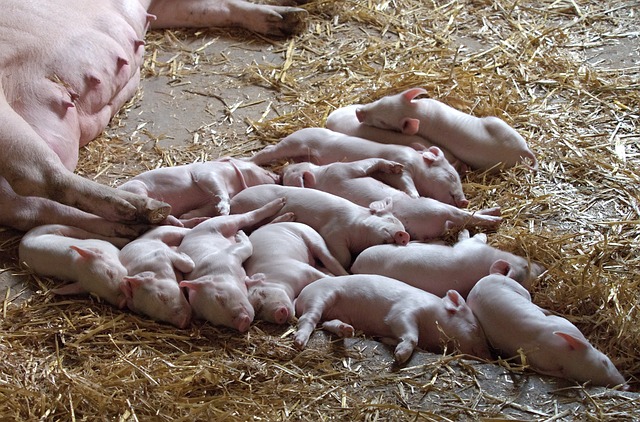
Let's start with a warning.
Just imagine:
Your little piglets, the ones you've worked so hard to raise, are suffering from violent bouts of diarrhea. 😢
They're weak, dehydrated, and on the verge of collapsing like a house of cards.
The thought of losing them, after all your effort, is enough to make your blood boil!
But here's the kicker:
There's a way to prevent this nightmare.
In today's guide, I'll reveal the secret to keeping your piglets hydrated and diarrhea-free.
It's time to take charge and give your piglets the help they need.
Let's dive in!
Tips for Proper Hydration and Water Management in Piglets
Proper hydration and water management are key for piglets' health and growth. 🐷
Here are some practical tips to ensure that your piglets stay properly hydrated:
- Provide clean drinking water at all times: This is crucial for piglets' in essence well-being. Make sure the water is fresh and free from any contaminants.
- Use automatic watering systems: These systems guarantee a continuous supply of water, which is essential for piglets' hydration. They act as transport systems and help maintain the acid-alkali balance.
- Pay attention to electrolyte balance: Different growth stages require varying levels of electrolytes. By monitoring and adjusting electrolytes, you can ensure optimal hydration for piglets.
- Offer enough drinking water for young piglets and growing pigs: Piglets have a higher water content in their bodies, so you have to provide them with sufficient clean water throughout the day.
- Maintain a suitable environment: Prevent heat stress or hypothermia by providing warmth immediately after birth and following proper processing procedures.
- Consider specific dietary components: Adding wheat bran, sugar beet pulp, and wheat distillers' dried grains with solubles (DDGS) to piglets' diet can positively impact their growth performance.
- Allow ad libitum access to feed and water: A constant supply of food and water promotes all in all development.
- Increase dietary cation-anion difference during the nursery period: This improves piglets' average daily gain and final body weight.
Properly implementing these suggestions will guarantee piglets are well-hydrated and their water needs are effectively handled, resulting in stronger and healthier animals.
Main points I'll expand upon further down this article:
- Vaccinations, cleanliness, regular vet visits, and additional supplements are crucial for pig health.
- Specific gut and respiratory conditions can lead to sudden death in piglets and growing pigs.
- Diets for piglets should be obtained from commercial feed mills, with different diets provided according to their age after weaning.
- Electrolytes provide essential nutrients, regulate nerve functions, and maintain hydration levels in piglets.
- Extra electrolytes should be added to pigs' water to ensure a proper balance.
- There are two types of electrolytes: stress electrolytes for adjusting to a new barn and replacement electrolytes for diarrhea episodes.
- Homemade or alternative electrolyte replacement solutions can be used for mild to moderate dehydration.
But wait, there's more to keeping your piglets healthy!
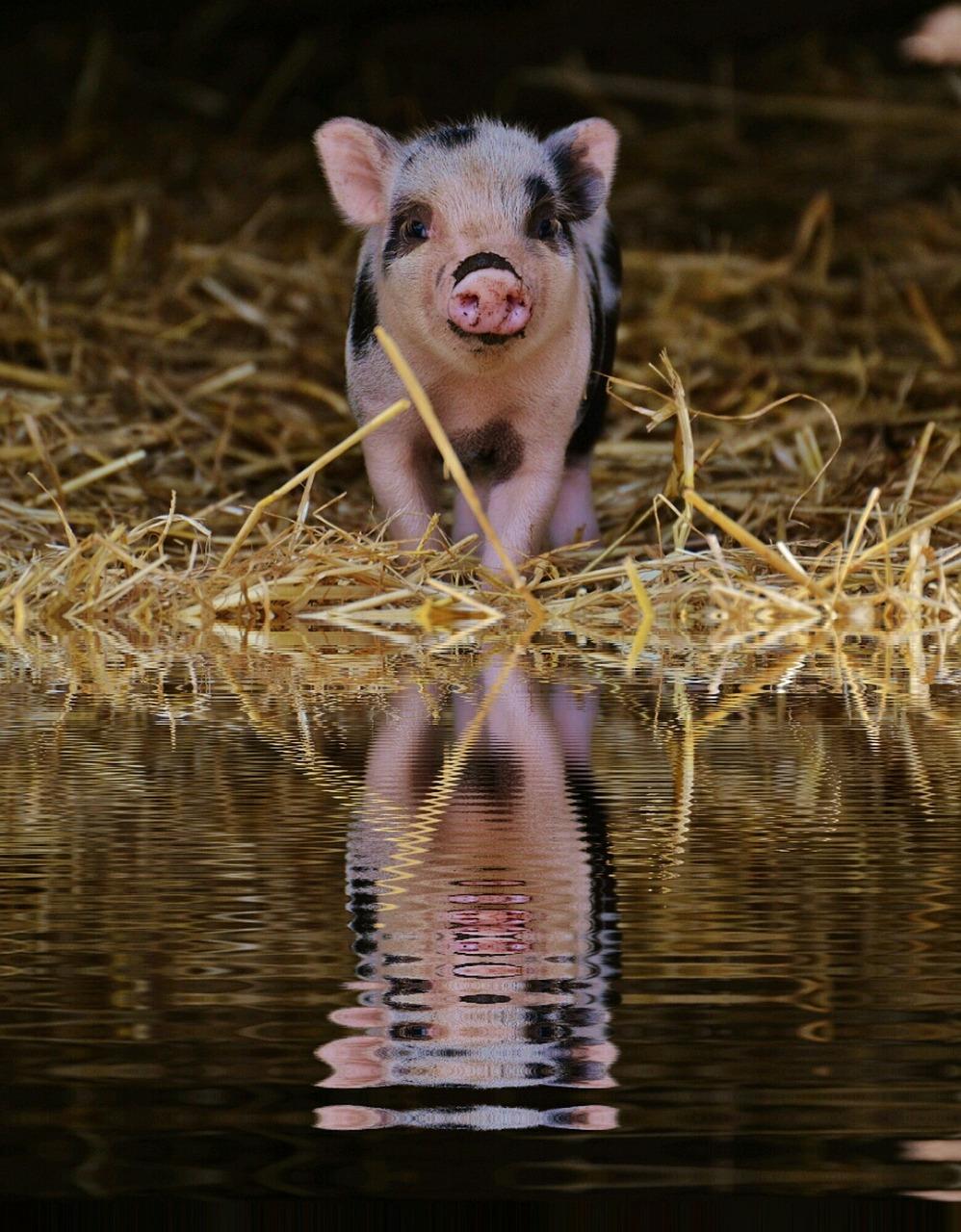
In the next section, we'll delve into the essential hygiene practices and additional supplements necessary for minimizing infection and promoting optimal nutrition.
Plus, we'll explore specially formulated diets from commercial feed mills.
You won't want to miss it...
Implementing Proper Hygiene and Nutrition Practices to Prevent Diarrhea in Piglets
Taking hygiene and nutrition seriously is crucial if you want to ensure piglets' safety from diarrhea.
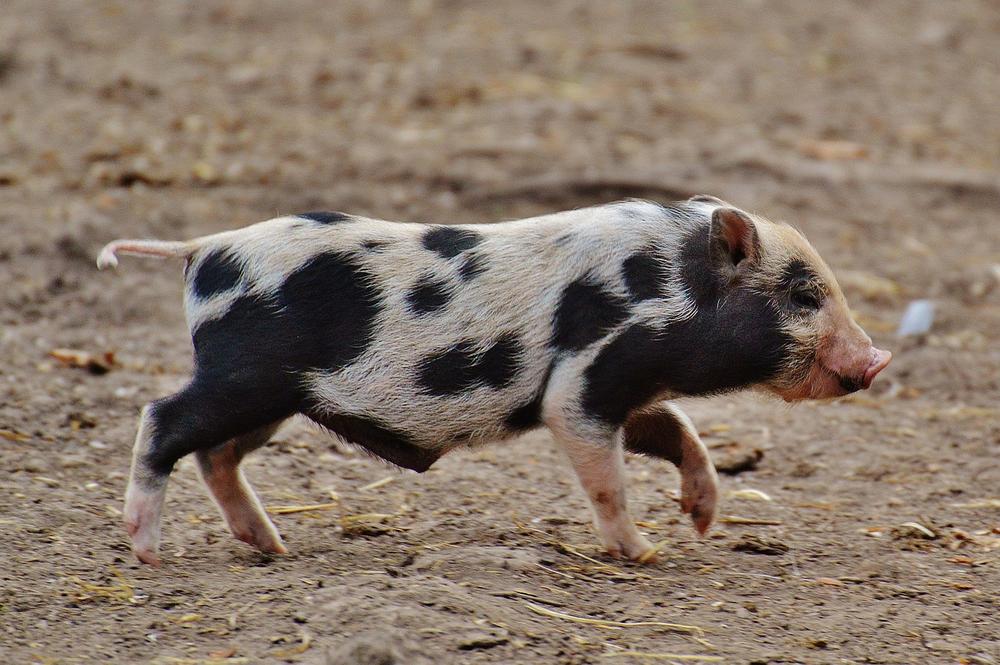
Here are some practical tips you should remember:
- Keep the pigpen clean - get rid of all the manure and waste regularly. This makes sure those harmful bacteria don't spread.
- Dispose of manure properly so it doesn't contaminate the food and water sources.
- Don't forget about vaccinations and vet check-ups. They're important for preventing diseases and catching any health problems early on.
- It's a good idea to add some supplements to the piglets' diet, like prebiotics and electrolytes, along with their regular feed. It helps keep their gut healthy.
- After weaning, the piglets need different diets depending on their age. Talk to a nutritionist or vet to ensure they're getting all the right nutrients.
Taking care of hygiene and nutrition is key to keeping piglets healthy and avoiding diarrhea and other health issues.
And here's a crucial tip to remember when it comes to keeping piglets hydrated and preventing diarrhea...
Electrolytes are essential!
Choosing the Right Electrolyte Solution
Look for electrolyte solutions specifically formulated for piglets
If you have piglets, it’s vital to ensure they are getting the right electrolyte solution.
You see, electrolytes provide essential nutrients and help regulate nerve functions and maintain hydration levels.
So, finding a solution specially formulated for pigs is crucial.
Two types of electrolytes: stress and replacement
Now, there are two main types of electrolytes for pigs:
Stress electrolytes and replacement electrolytes.
Stress electrolytes are used when your piglets are adjusting to a new barn or environment.
On the other hand, replacement electrolytes are used specifically when piglets have episodes of diarrhea.
These electrolytes are really helpful in mild to moderate dehydration caused by a number of factors like diarrhea, weaning, or heat stress.
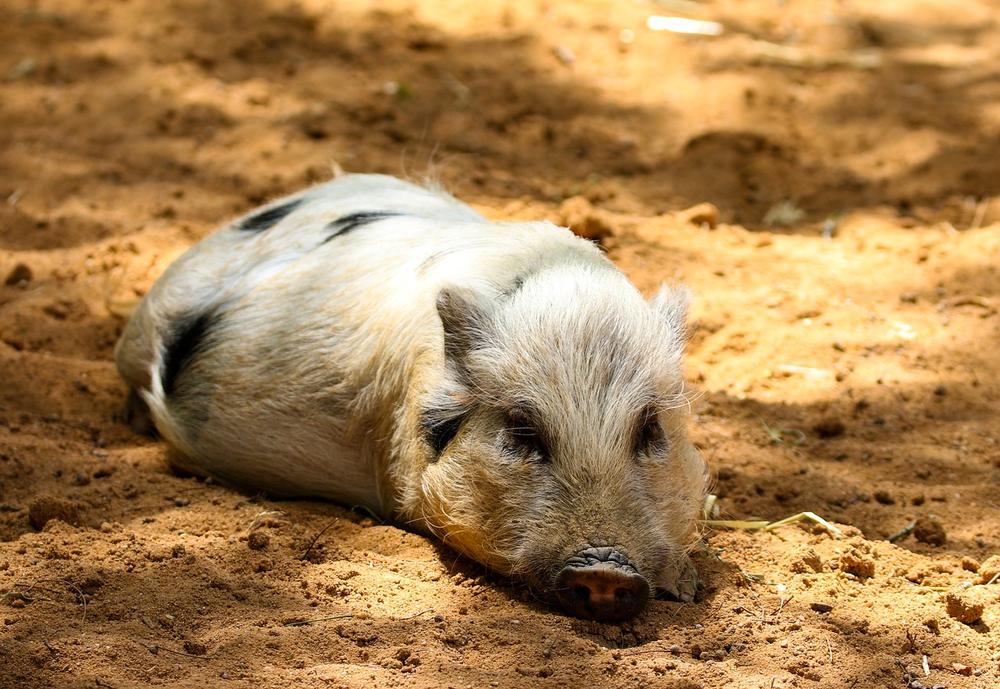
They help replenish lost fluids and also provide the necessary nutrition for piglets to recover.
Homemade or alternative options
Now, if you prefer a more DIY approach, you can make homemade electrolyte replacement solutions using specific recipes. Some people even use calf replacement electrolytes or the World Health Organization's recipe.
Just be sure to follow the instructions carefully and consult with a veterinarian if needed.
Interestingly, a study has shown that balancing electrolytes and diversifying diets in piglets can actually improve pig growth. It can enhance average daily gain, feed intake, feed conversion ratio, and final body weight. So, finding the right electrolyte solution is definitely worth it for the health and growth of your piglets.
And if you're wondering about the most fascinating aspect of pig drinking habits, I can provide the answer.
I personally explored this topic in depth in my informative blog post, called "Does a Pig Drink Through Its Nose".
Within this article, I delve into the intriguing phenomenon of whether pigs can actually drink through their nose.
You won't want to miss the insights I uncovered, as it sheds light on the importance of water for pigs.
Proper Electrolyte Administration for Optimal Health in Hydrating Piglets
Administering electrolytes orally is key for optimal health in piglets.
You see, controlling the amount of electrolytes given to each piglet is important. And one effective method is through suitable delivery devices like nipple bottles or oral syringes.
Oral rehydration therapy also plays a crucial role in combating dehydration.
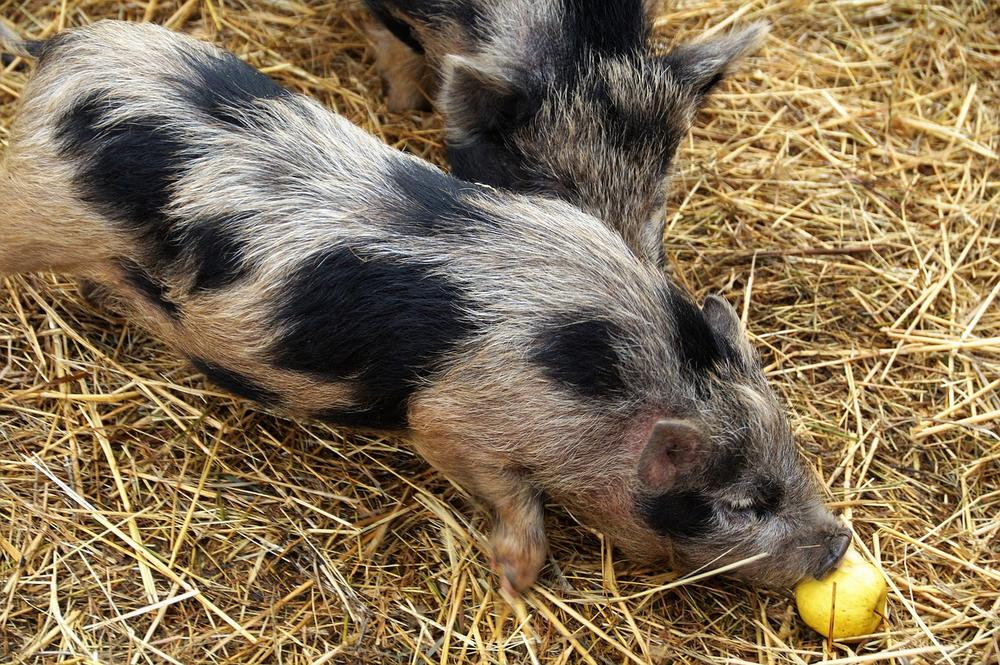
This therapy involves using solutions containing glucose, electrolytes, and other compounds to enhance electrolyte uptake.
But in severe cases, alternative methods such as intraperitoneal injection, stomach tube, or rectal administration may be necessary.
Now, let me introduce you to two specific products that can help with electrolyte administration for piglets:
- ActiPlus©: This liquid emulsion is designed specifically for young mammals like piglets. It is administered directly into their mouth, providing them with the necessary electrolytes and promoting optimal health.
- SupraPlus©: This product is given through drinking water and helps improve digestive health, hydration, and prevent digestive problems. It is particularly beneficial during the first week of life, episodes of heat stress, and digestive diseases.
And here's an interesting fact: increasing the dietary electrolyte balance from days 0 to 21 has been proven to enhance average daily gain, average daily feed intake, day 21 body weight, and growth efficiency.
So, proper electrolyte administration is essential for the all in all well-being of piglets. ✨
Common Electrolyte Imbalances in Piglets
Electrolytes are crucial for piglet health.
They help maintain fluid balance, muscle and nerve function, blood volume, and acid-base balance.
But piglets suffering from diarrhea can lose essential body salts, leading to electrolyte imbalances.
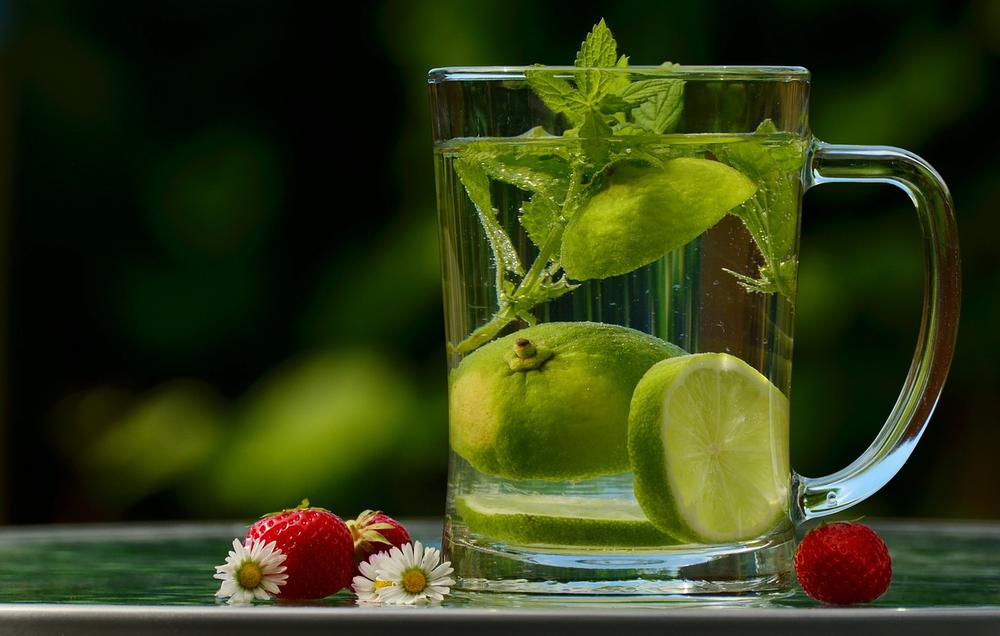
Here are some key points about electrolyte imbalances in piglets:
- Symptoms include heat stress, increased activity, and dehydration caused by illness or vomiting.
- Incorporating potassium and sodium chloride supplements can help correct imbalances and restore electrolyte levels.
- Low dietary electrolyte balance (dEB) and high dietary calcium can disrupt acid-base balance and mineral status.
- Different diets affect blood and urine pH, potassium and calcium concentrations, phosphorus intake and absorption, and calcium retention.
- The addition of chloride in the diet even affects femur characteristics.
To ensure piglet health, you should calculate the dietary electrolyte balance using a specific equation.
By understanding and addressing electrolyte imbalances, you can optimize piglet performance and promote overall well-being.
And here's where it gets interesting - understanding the signs of dehydration in piglets is just the beginning.
But did you know that these symptoms can point to either dehydration or an electrolyte imbalance?
Let me show you why monitoring these indicators is crucial for keeping your piglets hydrated and preventing health issues.
So, let's dive in!
Signs and Symptoms of Dehydration in Piglets
Look out for sunken eyes, reduced skin elasticity, lethargy, and diarrhea as signs that piglets are dehydrated.
Dehydration can also cause an electrolyte imbalance in those little piggies.
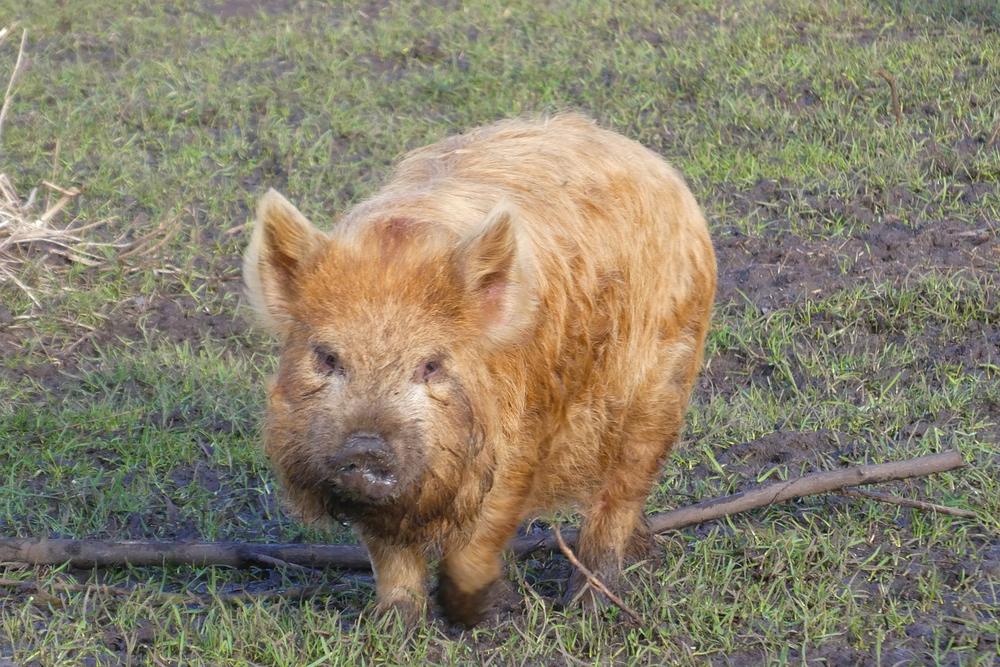
These symptoms could be a result of either dehydration or an electrolyte imbalance.
Pay close attention to these indicators to keep your piglets healthy and happy.
Make sure their hydration levels are where they should be to avoid any possible health problems down the line.
And that's all for today folks.
You've reached the end of my blog post, so I'd love to know your thoughts. Did you enjoy reading it? I always put in a lot of effort to write detailed and helpful blog posts. It takes me quite some time (which I actually enjoy), so if you could take a moment to click on any of the social sharing icons and share this post with others, it would mean the world to me. Thank you so much!
Until next time,
-Chris Campbell